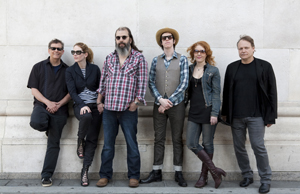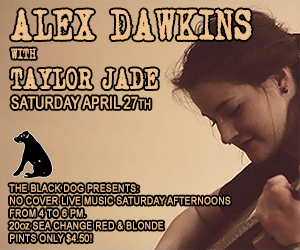LIVE TONIGHT: Steve Earle’s optimistic take on dependency
 It’s only in those little moments when our mortality is brutally exposed – those short, often painful moments of life – that we really get to see how humanity puts the best of itself into art. Steve Earle knows it as well as anyone.
It’s only in those little moments when our mortality is brutally exposed – those short, often painful moments of life – that we really get to see how humanity puts the best of itself into art. Steve Earle knows it as well as anyone.
Playing The Jube on Monday night with his full band and wife Allison Moorer, Earle is here supporting his latest CD “I’ll Never Get Out Of This World Alive,” a play on the old Hank Williams tune that influences both the songs and a same-name novel.
Earle wrote the book in part to help come to terms with his father’s death at 74 after a heart attack, the latest in more than 20 years of heart problems that limited the older’s man’s lifestyle as he aged.
“It was tough because he had a hard time leaving here,” he told media in Toronto. “He died of heart failure and he had his first heart attack and his first quadruple bypass when he was 48 and then another triple bypass 13 years later. At the end he was basically in a wheelchair and he couldn’t walk and he could barely breathe. It was really, really hard to be around, hard to watch, ’cause my father, of all people, he liked to go places, He liked to travel, he liked to drive, and he liked to walk around and he liked to see new things. It was probably crueler for him to get his wings clipped and to be an invalid to some extent the last few years of his life than it was probably for just about anybody.”
The novel explores the story of a doctor addicted to morphine who travelled with Hank Williams, whose songwriting and addiction issues mirror Earle’s own long battles. After writing it, Earle discovered the “doctor” was a real character – but not a doctor.
Given his own father’s grim reality, it might surprise no one that he chose to stick with the fictional version.
“The guy’s name was Toby Marshall and he wasn’t a doctor at all, he was a quack who claimed he could cure alcoholism with chloral hydrate, which is a barbiturate. By the time I discovered he wasn’t really a doctor, I decided my idea of a real doctor was more interesting and so I started building this character.”
Ultimately, the story is positive, Earle says, and the stories on the album optimistic.
“ I don’t see this as that dark a record. You want to hear a dark record, listen to (1990’s) The Hard Way. That’s a dark record. I was dying. I don’t think (this album) is dark. It’s pretty heavy stuff. I see it as optimistic and redemptive.”













